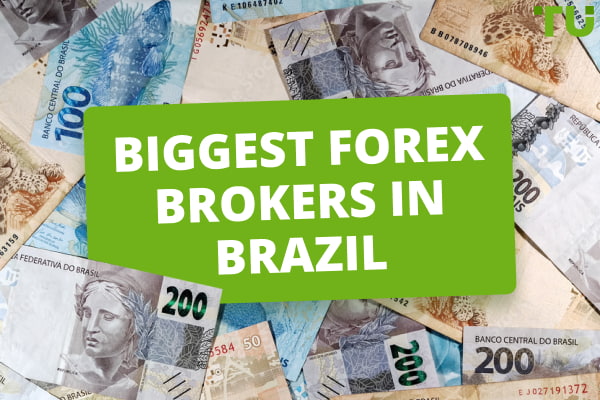Forex Trading in Singapore - A Full Beginner’s Guide
Forex trading in Singapore is a fast-growing, beginner-friendly trading strategy. For Singaporians looking to learn how to trade, Forex is a great place to start. In this guide, we’ll answer your biggest questions, like “What is Forex trading?”, “Is Forex trading legal in Singapore?”, and “How do you start Forex trading?”.
This beginner’s guide covers everything you need to know to start Forex trading in Singapore. We’ll cover basic definitions, taxes, legal matters and tips for choosing the right platform for your investment portfolio. Last but not least, we’ll cover everything you need to do before opening a brokerage account in Singapore.
Let’s get started!
Want to start Forex trading? Open an account at Interactive Brokers!What Is Forex Trading?
There are many ways to trade, but unlike stocks, where you own shares of a company, Forex is all about currencies. Forex stands for foreign exchange; traders buy and trade different foreign currencies to earn a profit. How much they earn depends on the exchange rate of their currency. Success stems from learning how to choose the right currency and trade when its global exchange rate rises.
Forex trading in Singapore allows you to trade around the world everyday. Because you rely on the global financial market for profit, there is a guaranteed liquidity for every investment as well as a dynamic, volatile marketplace.
Is Forex Trading Legal in Singapore?
Absolutely! Forex trading is completely legal in Singapore, and it has no government restrictions. The market is regulated and open to the public. While you can get started all on your own, the safest way to protect your finances is to only work with Forex brokers who hold licenses through the Monetary Authority of Singapore (MAS), or those who accept clients from Singapore.
How Much Money Do I Need to Begin?
How to trade with $100Brokers have a minimum start-up requirement of $10, but you can be at a disadvantage with such a small amount. In order to profit better, you need to avoid using large margins. Margins, by the way, are the difference between how much you borrow from a broker and the value of assets you purchase.
For beginners, it’s best to lower risk as much as possible. Only when you have sufficient experience will it be easier to take greater risks and pull larger profits. As a first-time investor, aim for the golden mean, which is $500 to $1,000.
In investment, the golden mean is considered the ideal middle ground between two extremes. You are not putting too much at risk, but you aren’t shorting yourself by investing too little, either.
Singaporen Forex Brokers Minimum Deposit Amount Comparison
| eToro | Interactive Brokers | AvaTrade | |
|---|---|---|---|
MInimum Deposit |
$50 |
$0 |
$100 |
How Do You Start to Trade Forex in Singapore? A Step-by-Step Guide
Forex trading in Singapore can be overwhelming for beginners, but don’t worry. With this guide, you can learn the entire process of choosing a Forex broker, making your first investment and building your passive income stream.
Step 1. Choose a Reputable Forex Broker
Not all Forex brokers are as good as they seem. While there are dozens to choose from, knowing the difference between a reputable and non-reputable broker is crucial. This is the first thing you should learn as you start to explore Forex trading.
The most important requirement is legal recognition. Make sure that you choose a Forex broker in Singapore who is authorized by the Monetary Authority Of Singapore (MAS). If you choose a Forex broker from another country, make sure that they actively accept and work with Singaporian traders.
Next, you should do some research on each broker. Pay close attention to the size of their commissions. This will largely affect your take-home profit and ability to earn passive income.
You should also go with a broker that offers plenty of free information.
Education is a beginner trader’s most valuable asset. Brokers who operate in secrecy are not the best way to build your portfolio. Instead, they should have knowledge bases and educational tools that help you grow as an investor.
Step 2. Start Forex Trading With a Demo Account
Demo accounts allow you to explore a Forex trading platform in Singapore without risk. The purpose of demo accounts is to let traders simulate real Forex trading without using real money. This can help you learn the ropes, familiarize yourself with the platform and start to learn how Forex trading really works.
The best part about demo accounts is that you can make plenty of mistakes without losing money. This is a trial-and-error period for you to openly explore and learn all the steps of trading currencies.
Rather than put your own money upfront, a simulated capital lets you play the market with zero risk. When you feel ready, you can make your first investment.
Remember to take your time; there is no rush, and the more you learn through demos, the more you stand to profit from real trading, especially with Forex trading Singapore for beginners.
Step 3. Choose the Right Strategy for Your Trading Goals
There are different types of Forex trading strategies to choose from. The one you use will influence how much capital you need, how much you earn and how easy the trading process is. Research is key here.
Choosing a trading strategy comes down to several factors, and you should know more than one. Many beginners mistake speed for success, and this can cost them thousands of dollars.
Forex trading is not about getting rich overnight. Instead, it is a strategic form of long-term investment. It can pay-off with short-term payouts, but it can also be used to build wealth over time.
As you research different types of Forex trading strategies, keep these tips in mind:
-
Choose a strategy based on its experience requirement, ease of use and your own schedule.
-
Practice various trading strategies on demo accounts to get a feel for how they work.
-
Avoid using advanced or “get rich quick” tactics to play the market.
-
Don’t invest any real money until you are confident about trading through a demo.
You may go for technical analysis, news trading, swing trading or another Forex strategy. What matters most is your confidence with any given model.
Strengthen your trading skills along with your investment knowledge. The more you know, the less you stand to lose when you begin trading currencies for real.
Step 4. Explore Passive Income Options
For a newcomer, building a trading strategy is difficult because the Forex market is always changing. With such high volatility, a strategic and reliable approach is necessary to stay profitable.
There are two passive income trading strategies for beginners that you might consider. The first is copy trading.
Copy trading lets you copy the strategies of professional traders in real-time. You profit at the same time they do, and you learn from their expertise in the process.
Another option is opening a PAMM account. Percentage allocation money management (PAMM) uses shared pools from various traders to generate profit. When you open a PAMM account in Singapore, you put forward capital and let a broker handle the rest.
When a PAMM account earns money, you get a portion of the total profit based on your contribution. The broker automatically deducts their fees, so you just get the money you’ve earned without any hassle.
For someone who does not have a lot of time or experience trading, both strategies are good for building passive income using others’ experience as a guide.
Step 5. Learn, Learn Learn
The only way to get better at Forex trading is to learn as much as you can. Follow top Forex traders online, read blogs, watch videos and study new strategies as often as you can.
While it is beginner-friendly, Forex is a massive, multi-billion dollar market with thousands of experienced traders operating every day. Accept the fact that you will lose money sometimes. That’s the nature of trading anything.
If you want to become a good Forex trader, you will need to become an expert at forecasting and risk management. Forecasting helps you choose the right strategy for your currencies.
When you know how to analyze the Forex market, you can make trades with the highest return on investment (ROI). Risk management allows you to do more than just identify the potential for profit; it helps you time your trading strategy to maximize profit and minimize loss.
One thing you should always keep in mind is that no one wins Forex in a marathon sprint. This is not a skill set you learn in a day or even a week. Traders commit years to learning, honing their skills and building solid portfolios.
Rather than overnight results, you should go into Forex with a long-term mindset. With experience comes wisdom, and in trading, wisdom generates wealth.
Top 8 Best Trading Apps in SingaporeBest Singaporean Forex Brokers For Beginners
Now that you know how Forex works and how to get started, let’s look at some of the best Forex trading platforms in Singapore. These brokers offer the greatest education and opportunity for beginners.
All of these brokers are regulated by ASIC, the Australian Securities & Investments Commission. You can trust these brokers to give you the security and guidance you need to begin Forex trading in Singapore.
eToro
The leading copy trading platform with a wealth of beginner tools and resources. With webinars, videos, blog posts and more, you can learn as much as you earn with eToro. The company was founded in 2006, so it has over 15 years of business to back its reputation.
eToro’s minimum deposit is $50, and after that, all bank transfers must be at least $500. There are no commissions or fees for Forex trading.
In addition to plenty of educational resources, users also gain access to a thriving social network. Talk to other traders, ask questions and learn from professionals all from the platform.
Interactive Brokers
This is a low-fee platform with local stocks and active trading opportunities. Interactive Brokers serves both beginner and experienced Forex traders through a variety of services.
The best part is that individual traders have no minimum deposit requirement; there are no commission or transaction fees as well as some of the lowest margin rates in the industry.
Scalping, one of the most popular Forex trading strategies, is especially profitable here. Traders have access to more than 120 global marketplaces.
Newbies also have plenty of tools to refine their trading skills. All of their resources are free to use.
Interactive Brokers fees reviewAvaTrade
The best forex trading app for beginners, AvaTrade is trusted by traders around the world. With a minimum deposit of $100, this is an easy-to-join platform that is optimized for mobile users.
Traders on-the-go will get to build portfolios through copy training; they also get unlimited access to trading education videos, terminology, a blog and detailed tutorials of different strategies.
AvaTrade offers a demo account, so you can get started with no risk. You can later open a PAMM account for passive income.
When Is the Best Time to Trade Forex in Singapore?
Best time to trade Forex - TU researchDifferent time zones affect trade rates, so research can help you build a strong framework for your strategy. Your personal schedule and time availability will also largely influence when you trade.
Forex trading is global, and it takes place throughout the week at different sessions. Each session is broken down into four regions.
Asia
The Japanese yen is the most commonly traded currency in the Asian trading session. It opens and closes on Monday from 8 am to 5 pm SGT. You will see currency pairings with the JPY yield the highest profits during this time.
Pacific
Based out of Sydney, the Pacific Forex trading market sees large currency trades using Australian dollars (AUD) and New Zealand dollars (NZD). This takes place from 6 am to 2 pm on Monday.
Europe
The European trade session lasts from 4 pm to 1 am SGT. During this session, London leads the market with Great British Pounds (GBP) as well as the widely used euro (EUR) throughout the rest of the continent.
America
The New York trading session lasts from 9 pm to 5 am SGT. All Forex USD trades are most liquid during this period.
Our analysis of over 2,000 successful traders found that the highest volatility is not always the best profitable trade time. Instead, they revealed that their greatest profits came from trading in a moderately volatile Forex market.
Do I Pay Forex Taxes in Singapore?
Capital gains from Forex are all tax-free unless you quit your job to trade currency full-time. Generally, most overseas income that comes into a Singapore bank account is not liable to tax laws.
How Much Can I Earn?
How much can you make trading in ForexThere is no definitive amount or baseline income for Forex traders. Some make several hundred a year, others make millions. Your profit will depend on your education, time investment, capital and trading strategy.
Sometimes, you may make a bad call and take an unexpected loss. It’s all part of the process. George Soros is a Hungarian-American trader with a networth of more than $8.6 billion. That does not mean every person who trades the same currencies he does will earn even a fraction of that.
The best way to guarantee a profit and minimize loss is to study as much as possible before you invest. Responsible trading is the only way to secure long-term profitability.
FAQs
Is Forex Trading Legitimate?
Yes, you can make a passive income and even full-time salary trading foreign currency. However, many newbies come into Forex with misinformation. Make sure you research Forex long before you invest. Above all, have realistic expectations.
Why Trade Forex?
Traders want to break free from traditional work life and gain financial freedom. You may trade because you want to build savings, or you want to replace your current job. It can take years to become skilled enough to live off your earnings, but for those who work hard, it can be worth it.
Can You Get Scammed During Forex?
The foreign exchange trading market is regulated, so scams are far and few between. However, you may get roped out of good money by choosing the wrong broker. Make sure you carefully research each one’s membership fees, commission fees and minimum deposits before you sign up. You should also research Forex trading Singapore reviews and pay close attention to what’s written.
Is Trading Forex Risky?
All investment comes with risk. The difference between good and bad traders is that the good accept risk while the bad try to avoid it at all costs.
Avoiding risk entirely is usually impossible; losses happen, but with the right strategy, a good trader can minimize the impact to come out on top later.
Team that worked on the article
Bruce Powers is an expert trader and technical analyst with over 20 years of experience in Forex, commodities, ETFs, cryptocurrencies and other assets. He is an active trader, technical and fundamental analyst, media commentator, educator and a writer. As an author for Traders Union, he contributes his deep analytical skills, expertise and understanding of the global economy and financial markets to provide market analysis and insights. Powers is also a frequent guest on business TV news shows.
Dr. BJ Johnson is a PhD in English Language and an editor with over 15 years of experience. He earned his degree in English Language in the U.S and the UK. In 2020, Dr. Johnson joined the Traders Union team. Since then, he has created over 100 exclusive articles and edited over 300 articles of other authors.
The topics he covers include trading signals, cryptocurrencies, Forex brokers, stock brokers, expert advisors, binary options. He has also worked on the ratings of brokers and many other materials.
Dr. BJ Johnson’s motto: It always seems impossible until it’s done. You can do it.
Mirjan Hipolito is a journalist and news editor at Traders Union. She is an expert crypto writer with five years of experience in the financial markets. Her specialties are daily market news, price predictions, and Initial Coin Offerings (ICO). Mirjan is a cryptocurrency and stock trader. This deep understanding of the finance sector allows her to create informative and engaging content that helps readers easily navigate the complexities of the crypto world.












